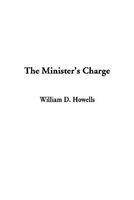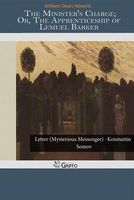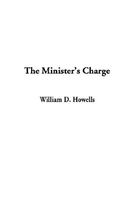- Welcome to FictionDB, Guest
- | My Account
- | Help

The Minister's Charge; Or, the Apprenticeship of Lemuel Barker — William Dean Howells / W.D. Howells
This 1886 novel introduces Howells's concept -- derived from Tolstoy -- of moral complicity, which would play a large part in his fiction from this point on. A poor farmer, Lemuel Barker, comes to Boston with dreams of becoming a poet. Instead, his naïveté leaves him an easy mark, and he is soon destitute. A minister, Sewell, is forced to consider his own complicity in Barker's fate . . . and by extension that of all his less-fortunate fellows.
Genres
Sub-Genres
Click on any of the links above to see more books like this one.







